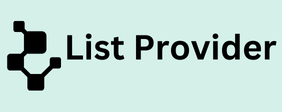Email marketing remains a cornerstone for any hotel seeking sustained growth. It offers a direct and personal channel to connect with guests. This digital strategy is highly effective for building lasting relationships. Hotels can leverage email to drive direct bookings. It also helps in enhancing guest loyalty over time. Personalized communication sets successful hotels apart.
Engaging with past, current, and potential guests is vital. Email campaigns deliver updates, special offers, and valuable content. They reach individuals directly in their inbox. This bypasses competitive online travel agency platforms. Ultimately, this approach improves profit margins. It fosters a sense of exclusivity among recipients. Hotels gain greater control over their brand message.
A well-executed email strategy builds brand recognition. It ensures your hotel stays top-of-mind. Guests appreciate tailored recommendations and timely information. From booking confirmations to post-stay feedback, email covers it all. It transforms one-time visitors into repeat customers. This consistent engagement is key to long-term success. It is a powerful tool for the modern hospitality industry.
Building a Robust Hotel Email List for Guest Engagement
Growing your hotel email list is foundational to success. High-quality email addresses are invaluable assets. Consent is paramount in this process. Guests should explicitly opt-in to receive communications. This ensures compliance with data protection regulations. It also leads to higher engagement rates. Ethical list building prevents your emails from being marked as spam.
Diverse strategies can help expand your subscriber base. Prominently display signup forms on your hotel website. Offer incentives like exclusive discounts or early-bird access. Encourage sign-ups during the booking process. Make it simple for guests to join. Collect email addresses during check-in, with permission. Provide a clear value proposition for subscribing.
Leverage loyalty programs to gather email contacts. Guests are more likely to share data for rewards. Promote your newsletter on social media channels. Run contests or giveaways requiring an email entry. Partner with local businesses for cross-promotional efforts. Each touchpoint is an opportunity. Focus on quality over sheer quantity of subscribers.
Crafting Compelling Hotel Email Campaigns and Personalized Offers
Effective email marketing for hotels goes beyond sending newsletters. It involves crafting engaging content that resonates. Segmentation is crucial for delivering relevant messages. Divide your audience based on past stays, preferences, or demographics. Tailored content feels more personal and valued. Generic emails often lead to low open rates.
Consider different types of email campaigns for hotels. Pre-arrival emails can build excitement and provide useful information. Share local attractions or dining recommendations. During-stay emails might offer room service specials. Post-stay communications are perfect for feedback requests. They also encourage future bookings with special offers. Use high-quality images to enhance appeal.
Seasonal promotions and holiday packages are highly effective. Highlight unique experiences offered by your hotel. Share testimonials from happy guests. Personalize subject lines to boost open rates. A strong call-to-action is essential in every email. Make it clear what you want recipients to do. Drive direct bookings with compelling offers. Understanding potential guest demographics and sourcing new market data, even something as specific as a Turkey Number Data Trial – 10,000 Cell Phone Numbers List, can provide insights that indirectly shape email content and target audience understanding. This helps in targeting new segments.
Advanced Email Marketing Strategies for Hotel Guest Retention
Moving beyond basic campaigns enhances hotel profitability. Automation can streamline many email marketing tasks. Set up automated welcome series for new subscribers. Send birthday greetings with special discounts. Trigger re-engagement emails for inactive guests. These automated sequences save time and effort. They ensure consistent communication flows.
A/B testing is vital for continuous improvement. Experiment with different subject lines and email content. Test various calls-to-action and send times. Analyze which elements yield the best results. Data-driven decisions optimize your campaign performance. This iterative process refines your strategy. It leads to higher conversion rates over time.
Integrate email marketing with your loyalty program. Use emails to announce new benefits or tier upgrades. Exclusive access to amenities can be promoted. This strengthens guest loyalty significantly. Email marketing is a cornerstone of a multi-channel approach. While email marketing for hotels is paramount, a holistic view of guest engagement also considers other vital communication channels. For deeper insights into broader client outreach, understanding how to apply different communication methods, such as outlined in Mastering Telemarketing: Strategies for Modern Business Growth, can further inform and complement your overall hotel marketing strategy. It creates a seamless guest experience across all touchpoints.
Measuring Email Marketing Success and Future Trends in Hospitality
Tracking key performance indicators (KPIs) is essential. Monitor open rates to gauge subject line effectiveness. Analyze click-through rates (CTR) for content engagement. Conversion rates measure direct bookings from emails. Evaluate return on investment (ROI) to justify efforts. These metrics provide clear insights into campaign success. They guide future strategic adjustments.
Evolving Hotel Email Strategies for Enhanced Guest Journeys
The landscape of email marketing for hotels is always evolving. Personalization will become even more sophisticated. AI-driven content generation and predictive analytics are emerging. Focus on creating unique, memorable guest journeys. This involves understanding individual preferences deeply. Embrace new technologies to stay competitive. Continuous learning and adaptation are key to sustained success.
